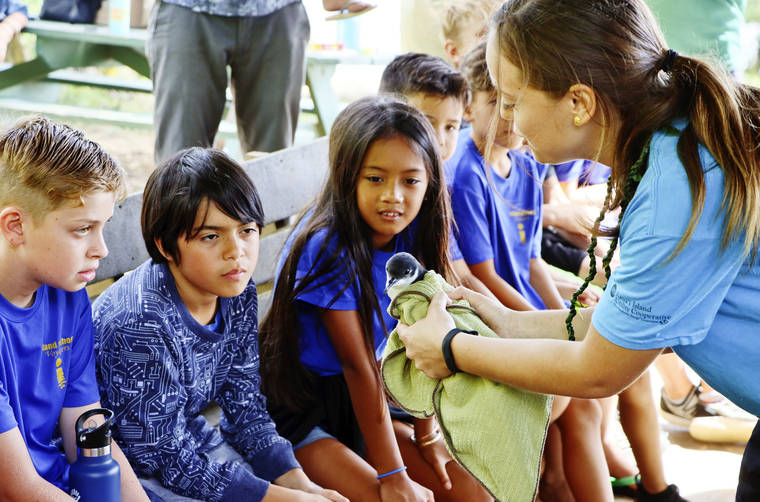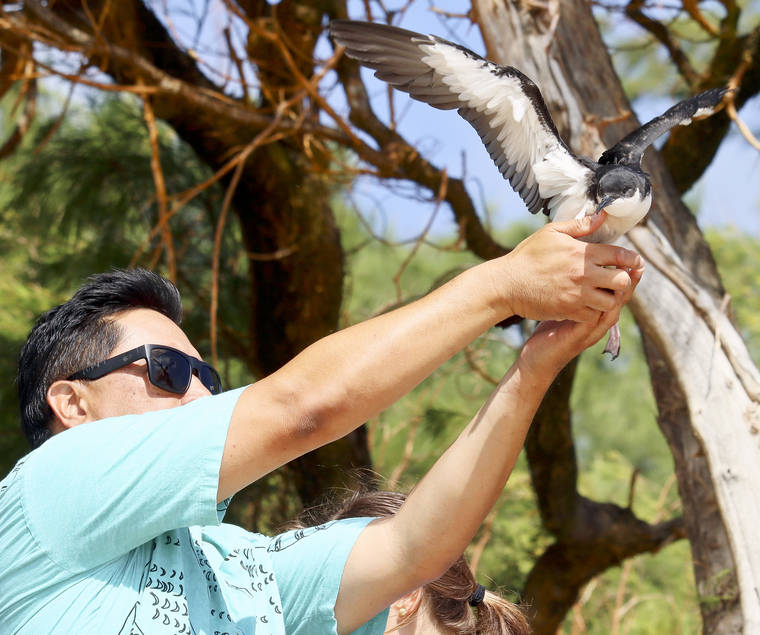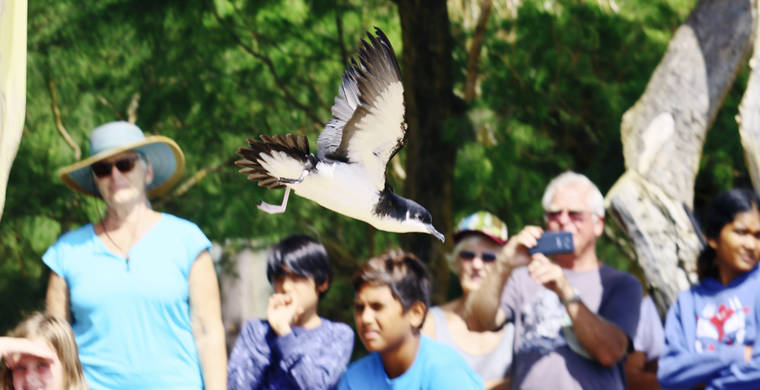LYDGATE — Island School students River Summer and Xochitl Morales-Widner said they thought it would be cool to someday release a shearwater.
Tuesday, they got to watch it happen.
“I’d be nervous,” Morales-Widner, 9, said. “I have birds at home and sometimes they peck at me.”
Summer, also 9, learned about how the birds spend years at sea and said, “It’s pretty cool for them to be gone on a fishing trip that long.”
After the chicks leave their burrows, they head for the ocean, where they spend four or five years before returning to land to begin the nesting cycle all over again.
But some, like those released Tuesday, end up landing on Kauai when they get distracted by lights or run into power lines before they make it to the ocean. They were rescued by community members and taken to the Save Our Shearwaters rehabilitation facility at the Kauai Humane Society.
A ceremony to release three of the seabirds brought many together at Lydgate Park on Tuesday morning. Some, like Councilman Luke Evslin, were chosen to take part in their first flights, allowing the birds to perch on outstretched hands until they flap their wings and take off.
“I was terrified my shearwater wasn’t going to fly,” Evslin said after the ceremony.
Kumu Sabra Kauka and Councilmember Mason Chock were the other two who released shearwaters. It was Chock’s first time, too.
“It was so cool to have that kind of interaction with nature,” he said.
Before releasing the shearwaters, the councilmembers had a chance to talk with the kids, and both highlighted the importance of the lessons these birds can teach. They also pointed out the need to protect the endangered species.
“It’s about balance,” Chock said. “Preserving life and also taking the important steps to prevent (fall-out and collisions).”
Evslin reminded the younger generation that they, too, can be a part of preserving the species.
“These shearwaters were here long before us; it’s our responsibility to make sure that they’re still here long after us. We’re on watch to make sure that we can all co-exist here in Hawaii,” he said.
Shearwater fledging season runs through Dec. 15. Any found birds can be brought to rehab centers at local fire stations and at the Save our Shearwater headquarters.
•••
Jessica Else, environment reporter, can be reached at 245-0452 or at jelse@thegardenisland.com









Approximatly 2000 a’o die every year because of power lines that could easily be modified. Hitting the ground they are then victims of cats that are released on the land. All threats caused by people that can be solved by people. These birds are in peril of extinction. Fix the lines and stop putting cats outside.